AI IN HEALTHCARE DIAGNOSTICS
INNOVATIONS LEADING TO HEALTHY OUTCOMES
AI in healthcare diagnostics leverages advanced algorithms to analyze medical data swiftly and accurately, enhancing diagnostic precision and enabling personalized treatment plans. It excels in interpreting medical imaging, analyzing patient records, and predicting health outcomes, transforming medical practice by improving efficiency and patient care outcomes.
REAL IMPACT BUSINESS AI FOR HEALTHCARE
AI in healthcare diagnostics accelerates processes, enhances accuracy, and supports personalized care, thereby optimizing productivity, reducing costs, and boosting profitability for healthcare providers.
10+
Successfully Project Finished.
7+
Years of experience with proud
1Mn+
Revenue in 2017 investment
20+
Colleagues & counting more daily
Quality AI Services for Healthcare
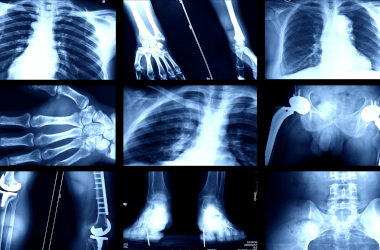
Medical Imaging Analysis
Radiology image interpretation (X-rays, CT scans, MRIs). Pathology image analysis (digital pathology).
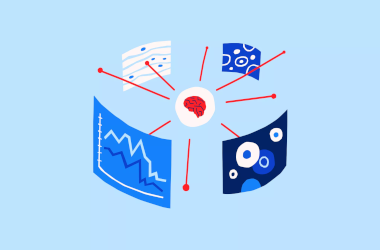
Early Disease Detection
Screening and identification of early signs of diseases. Risk assessment and preventive strategies.
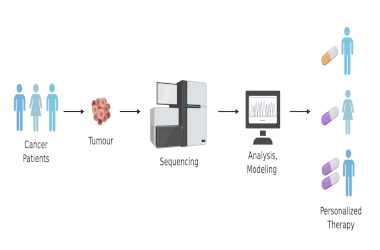
Personalized Medicine
Tailoring treatment plans based on individual characteristics. Genetic and molecular profiling.
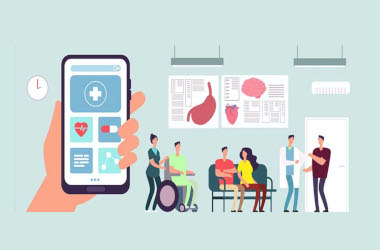
Clinical Decision Support Systems
AI-powered tools for assisting clinicians in decision-making. Evidence-based recommendations.
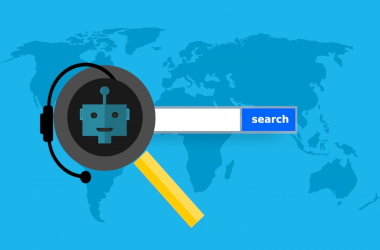
Natural Language Processing (NLP)
Extraction of insights from unstructured clinical notes. Summarization and categorization of information.

Predictive Analytics
Forecasting patient outcomes based on historical data. Identifying at-risk patients for proactive intervention.
Sustainability
Committed To Keep People Healthy & Safe
AI for healthcare diagnostics involves energy-efficient algorithms, renewable energy data centers, cost-effective and scalable solutions, equitable access, ethical practices, continuous model improvement, regulatory support, and predictive analytics, ensuring environmental, economic, and social responsibility throughout the AI lifecycle.
We Follow Best Practices
AI for healthcare diagnostics include ensuring data privacy, using diverse datasets to minimize bias, maintaining transparency in AI decisions, integrating with existing healthcare systems, prioritizing following aspects.
- Patient Safety
- Continuous Learning & Improvement
- Fostering interdisciplinary Collaboration
- Ethical guidelines & Regulatory standards
Technologies
Visual AI
We help organizations leverage computer vision for enhanced visual data analysis. Key capabilities include:
- Image and Video Analysis: Analyzing images and videos for object detection, facial recognition, and scene understanding.
- Custom Model Development: Creating tailored AI models to meet specific business needs.
- Integration: Seamlessly integrating visual AI solutions into existing IT infrastructure and workflows.
- Real-Time Processing: Providing real-time visual data processing for applications like surveillance and quality control.
- Predictive Maintenance: Using visual AI for early detection of equipment wear and anomalies.
- Security and Compliance: Ensuring robust data security and compliance with industry standards.
- Consulting and Support: Offering expert advice, training, and ongoing support to maximize the value of visual AI investments.
NLP - Chatbots
We help to enhance customer interactions and automate processes through intelligent conversational agents. Key capabilities include:
- Custom Chatbot Development: Creating tailored chatbots to meet specific business needs across various platforms (web, mobile, social media).
- Natural Language Understanding (NLU): Leveraging advanced NLP techniques to accurately interpret user intent and context.
- Multi-Language Support: Enabling chatbots to communicate in multiple languages to cater to a global audience.
- Integration: Integrating chatbots with CRM, ERP, and other enterprise systems for seamless data flow and enhanced functionality.
- 24/7 Support: Providing round-the-clock customer service and support through automated conversations.
- Analytics and Reporting: Offering insights into chatbot interactions to optimize performance and improve user experience.
- Continuous Improvement: Utilizing machine learning to enhance chatbot capabilities and accuracy over time.
Data Management
We offer a comprehensive suite of capabilities to ensure effective data handling and utilization. Key capabilities include:
- Data Integration: Combining data from diverse sources into a unified, accessible format.
- Data Quality Management: Ensuring accuracy, consistency, and reliability of data through cleansing and validation.
- Data Governance: Implementing policies and procedures for data security, privacy, and compliance.
- Master Data Management (MDM): Centralizing critical data to provide a single source of truth.
- Data Warehousing: Designing and managing scalable data warehouses for efficient storage and retrieval.
- Big Data Management: Handling large volumes of data efficiently using modern big data technologies.
- Advanced Analytics: Leveraging data for predictive and prescriptive analytics to drive business insights.
Cloud Computing
We help organizations seamlessly integrate and manage multiple cloud services. Key capabilities include:
- Multi-Cloud Integration: Enabling seamless connectivity between different cloud platforms (e.g., AWS, Azure, Google Cloud) for optimal performance and cost management.
- API Management: Developing and managing APIs to ensure smooth communication between cloud applications and services.
- Data Integration: Synchronizing data across cloud and on-premises systems to ensure data consistency and accessibility.
- Security and Compliance: Implementing robust security measures and ensuring compliance with industry standards.
- Monitoring and Optimization: Providing tools and expertise to monitor cloud environments and optimize resource usage.
- Migration Services: Facilitating the smooth transition of applications and data to the cloud.
Use Cases
Hip Displacement - DDH
AI for detecting Developmental Dysplasia of the Hip (DDH) utilizes advanced machine learning algorithms to analyze medical images, such as ultrasounds and X-rays, for early identification of hip joint abnormalities. By automating the analysis process, AI enhances diagnostic accuracy, reduces human error, and allows for consistent and objective assessments. This technology enables timely intervention and treatment, which is crucial for preventing long-term complications associated with DDH. Additionally, AI-driven tools can facilitate widespread screening, making it easier to identify at-risk infants and improving overall patient outcomes. Integrating AI into clinical workflows ensures more efficient and effective healthcare delivery.
Fetal Facial Features - Genetic Disorders
AI for measuring fetal facial features and detecting genetic disorders leverages advanced image processing and machine learning techniques to analyze ultrasound images. By accurately measuring facial features, AI can identify markers indicative of genetic conditions such as Down syndrome and other chromosomal abnormalities. This technology enhances early diagnosis, enabling timely medical intervention and counseling for expectant parents. AI-driven tools provide consistent, objective assessments, reducing human error and improving diagnostic accuracy. Integrating these AI capabilities into prenatal care enhances screening efficiency, promotes better health outcomes, and supports informed decision-making, ultimately advancing the quality of maternal-fetal healthcare.
Breast Cancer Screening
AI for breast cancer screening utilizes advanced algorithms to analyze mammograms and other imaging modalities for early detection of malignant tumors. By identifying patterns and anomalies that may be indicative of cancer, AI enhances diagnostic accuracy and reduces the risk of human error. This technology supports radiologists by highlighting suspicious areas, enabling quicker and more accurate assessments. AI-driven screening tools facilitate early intervention, which is crucial for improving patient outcomes. Additionally, AI can help in stratifying patients based on risk, optimizing personalized screening schedules. Integrating AI into breast cancer screening workflows improves efficiency, consistency, and accessibility of high-quality diagnostic care.
Personalized Medicine
AI for personalized medicine leverages machine learning algorithms to analyze vast amounts of patient data, including genetic, clinical, and lifestyle information, to tailor treatments to individual needs. By identifying patterns and predicting responses to various therapies, AI enables healthcare providers to devise highly specific treatment plans. This approach enhances the effectiveness of interventions, minimizes adverse effects, and improves patient outcomes. AI can also assist in identifying novel biomarkers and potential drug targets, advancing precision medicine research. Integrating AI into clinical practice ensures more accurate diagnoses, optimal treatment strategies, and continuous adaptation to patient-specific changes, thereby revolutionizing healthcare delivery.
